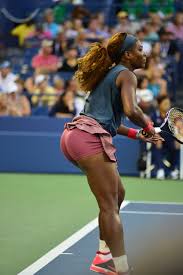Power = Work (force x distance) Time
In order to develop power many athletes will seek to develop their strength at speed.
Power relates to movement efficiency and sports performance because for many sports power is required more than strength or speed on its own. This is because acceleration relates to power. So for example, when a full-back wants to take on the defensive line, they often move along at a “cruise” pace, and then quickly accelerate around the defender. This acceleration requires power in order to get around the defence as they have to react before they then exert their power in order to catch them. If the full-back has greater power, he is more likely to get around the defender.
Greater power will also mean the athlete can complete set amounts of work at a faster rate. This means they are less efficient in terms of energy expenditure per minute, but more efficient if it is a time related sport. So for example, they will use more energy faster throughout a 60 minute Netball game. This may mean they fatigue faster and require more rests. This is why in rugby league the forwards are substituted so frequently, they have a greater power and require greater rests because they fatigue faster.
 On the other hand, in sports such as the 100 m sprint, or a 50 m swim greater power is an advantage as it will allow the body to move faster and complete the set amount of work in a faster time. it is also advantageous in sports where short fast movements are helpful to the outcome, such as martial arts or combat sports. Boxing in-particular benefits from the athlete having excellent power in their punches, and tennis from power in the serve.
On the other hand, in sports such as the 100 m sprint, or a 50 m swim greater power is an advantage as it will allow the body to move faster and complete the set amount of work in a faster time. it is also advantageous in sports where short fast movements are helpful to the outcome, such as martial arts or combat sports. Boxing in-particular benefits from the athlete having excellent power in their punches, and tennis from power in the serve.
If an athlete has good power, this does not directly result in good performance, not even in a sport such as shot put, which is heavily influenced by power. This is because performance in sport also requires good technique and often many of the other components of physical fitness. A rugby player with great power is still fairly useless without good muscular endurance, or coordination. However, athletes in sports where power is prominent will generally perform better if they have good power to go with their good technique etc.

